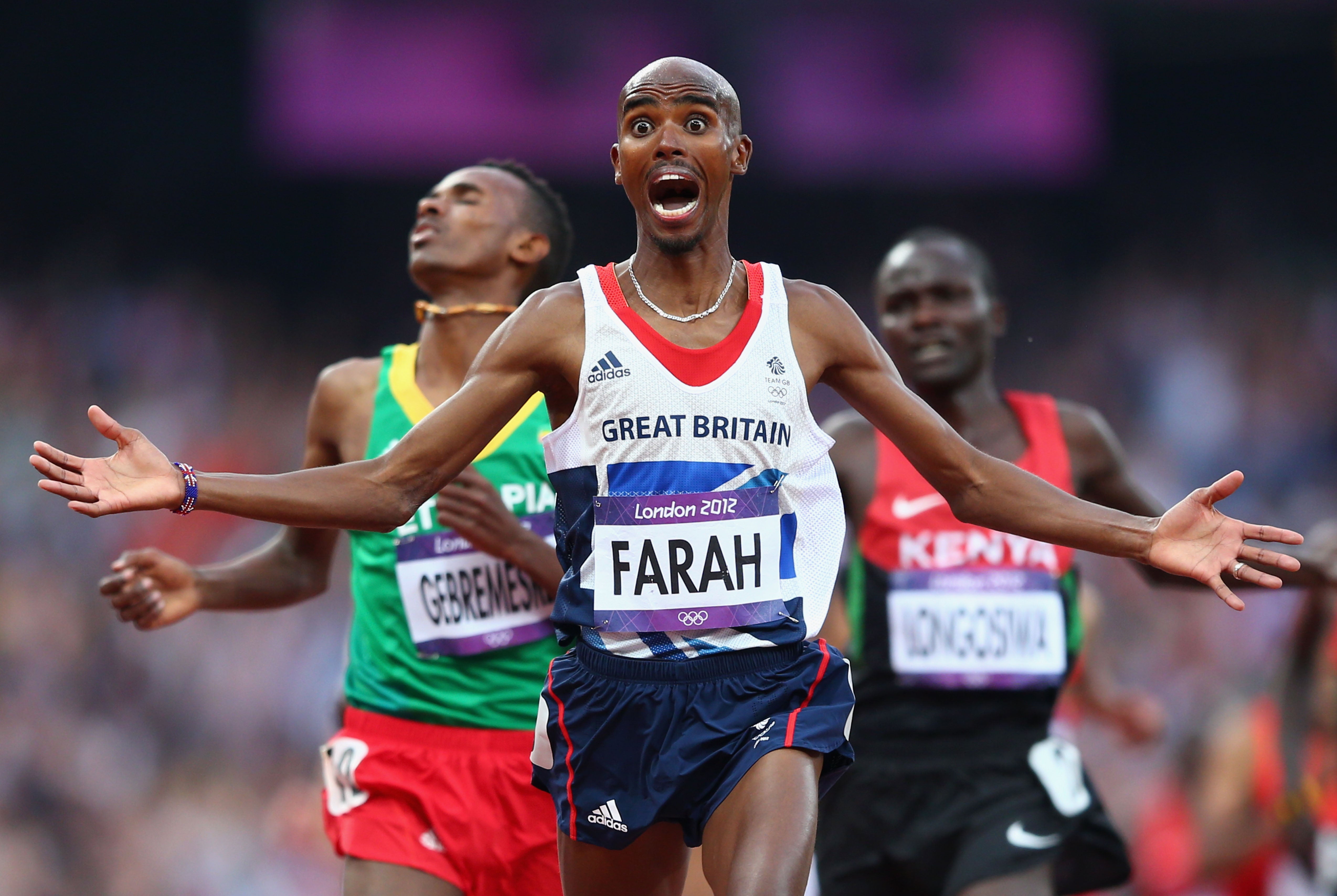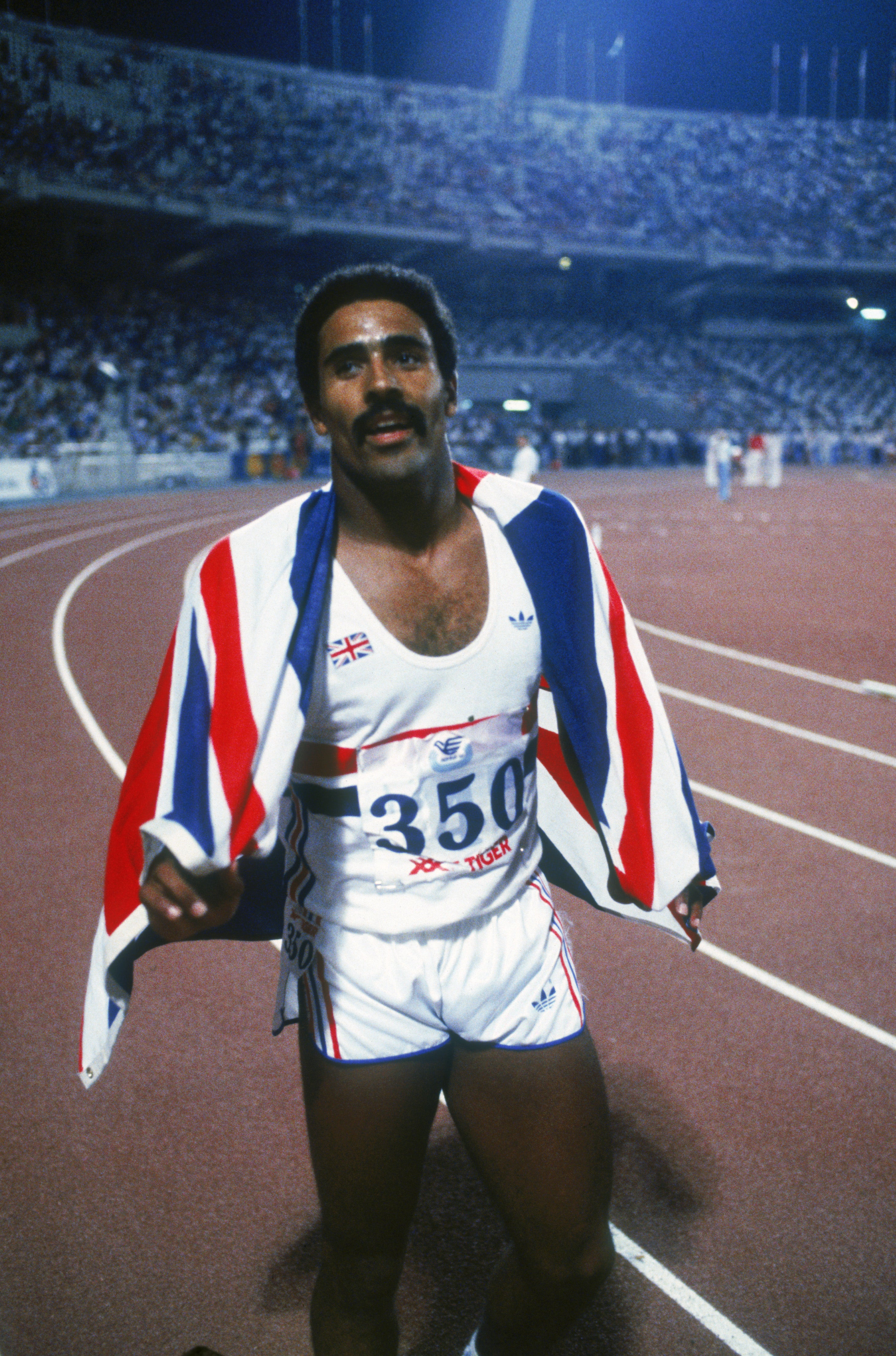In the BBC’s new feature-length documentary about his remarkable life and career, there is a short piece of Daley Thompson competition footage that bears little resemblance to the man often described as Britain’s greatest ever Olympian.
It is taken from the 1976 Montreal Olympics, at the start of the second day of what was only his fifth senior decathlon. Already languishing well down the field overnight, he begins the morning with a truly atrocious 110-metre hurdle race that sees him whack every obstacle in his path and trail in a distant last place. It is a dreadful performance.
By the end of the 10-discipline competition, Thompson would end up 18th of 23 finishers. “I was 18th on my 18th birthday, so very chuffed,” he recalls, on Daley: Olympic Superstar.
Thompson was not there to win; he knew he stood no chance, explaining that “it was so, so exciting because nothing was expected of me”. Instead, he vowed to absorb every snippet of information he could, seizing the opportunity to learn. So, in between his runs, jumps and throws, he set about pestering America’s eventual Olympic champion Bruce – now Caitlyn – Jenner.
“I would just go up to him and ask questions,” says Thompson. “How much do you train? Where do you train? Jenner was fantastic, giving me all the information that I needed to get to the next step.”
Jenner’s victory that day came courtesy of a world-record points tally that would stand for almost four years until Thompson surpassed it. By the end of his career, Thompson would win two Olympic, one world, two European and three Commonwealth titles. He would set four world records and go unbeaten in the decathlon for an astonishing nine years.
The Montreal Olympics were formative in creating a true British sporting great. Yet if things were then as they are now, he would never even have been given the chance to compete there.
There were few surprises when Team GB announced their athletics squad for the upcoming Paris Olympics, and it did little to detract from the controversy the lineup caused and is continuing to cause. Sticking resolutely to its policy of only picking athletes it deems capable of top-eight finishes, UK Athletics – the sport’s national governing body, which selects the team for international events – has opted to reject a host of invites for athletes who had otherwise qualified through their world ranking.
The decision, understandably, has prompted fury from some whose Olympic dreams have been dashed, of whom there were at least half a dozen. Among them was discus thrower Jade Lally, whose best mark this year is the furthest by a British woman since the early 1980s and would have been good enough for seventh at the last Olympics.
She told The Telegraph she is now planning to retire from the sport, adding: “If you are a British athlete, and have already missed out on a championship, I would 100 per cent encourage anybody to switch to another country if that is an option. I feel like I have wasted a career trying to prove a federation wrong.”
There was hammer thrower Anna Purchase, who has reached world and European finals over the past year, and her male compatriots Jake Norris and Kenneth Ikeji, whose best efforts this season would have placed them seventh and eighth respectively at the 2020 Tokyo Games. British shot-put champion Amelia Campbell, another athlete snubbed, called UK Athletics’ policy “disgusting” and said it was “killing” the sport in Britain.

So, what is going on? While no one from the federation has fielded media questions since the Olympic team announcement earlier this month, UK Athletics chair Ian Beattie did write a piece on the Athletics Weekly website in an attempt to explain the logic. Some of his claims were staggering to many observers.
“An athlete getting to the Olympics with little chance of qualifying from their heat or pool does not have a significant impact on inspiring the nation, and therefore does not merit public funding,” he wrote.
“There is also an issue that larger teams can dilute the level of support given during the championships to our genuine medal contenders, and that there is a demotivational effect on the team as a whole when the first few days of the championship are dominated by athletes failing to qualify from their heat or pool.”
If what he says is true, then Thompson’s 18th-place finish at the 1976 Olympics was nothing but a hindrance. Triple jump world record holder Jonathan Edwards must have sucked the energy out of his British teammates when he finished 23rd in 1988 and 35th in 1992 – irrespective of him then going on to win silver and gold at the next two Olympics.

There are any number of other examples of British Olympic also-rans converting into world-beaters a few years later who have made their country proud. Javelin thrower Tessa Sanderson finished 10th and 19th at the Olympics before she finally won gold in 1984. Sir Mo Farah did not advance from his 5,000m heat at the 2008 Games but then went on to claim four Olympic and six world titles. Both athletes went on to become feted national treasures whose names we may not have even been aware of in another time with a different policy in place.
It is not difficult to speculate about the overriding reason behind such a short-sighted selection policy. Only last December, Beattie was having to offer reassurances that UK Athletics would stay afloat after announcing record losses of £3.7m for a financial year in which it failed to secure a title sponsor or television deal. A further seven-figure loss is projected for its next accounting year.
Hence the Team GB athletics contingent for these Paris Games is the smallest at any Olympics for 20 years, while the places turned down by the federation instead go to lesser-performing rivals from other nations. Not Sweden, though.
This week, five of the nine Swedish track and field athletes whose Olympic invitations were similarly turned down by their national federation began crowdfunding to start legal proceedings against the decision. They have filed a case at the Court of Arbitration for Sport, arguing against the Swedish federation’s policy of only picking athletes the selectors deem capable of a top-12 finish.
The hope, say the Swedish athletes, is to set a precedent that can help all those worldwide who, many believe, have been denied their rightful Olympic spots. People like Purchase, Norris, Ikeji, Campbell and the rest of the British athletes who thought they would have the chance to compete in Paris but will instead be watching on television from afar.
What would have become of Thompson if he had been put in the same position of not competing at those Montreal Games as a teenager in 1976? If he had never smashed all those hurdles and languished near the bottom of the standings? If he had not been able to glean every morsel of advice from Jenner?
Few athletics fans noticed Thompson during those two days of competition in Canada. But they certainly know what he did next.

